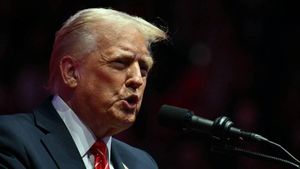Volkswagen is embroiled in a significant legal battle against Indian authorities, challenging the largest tax demand the country has ever issued, totaling $1.4 billion. This case, which has garnered attention for its potential impact on foreign investment in India, revolves around accusations by Indian tax officials who claim the automaker used misleading tactics to import vehicle components.
According to court documents reviewed by Reuters, Volkswagen's subsidiary, Skoda Auto Volkswagen India, argues the tax demand contradicts established import taxation rules set by the Indian government for car parts. The company maintains this legal challenge is not only about the financial figures involved but also about maintaining the integrity of the foreign investment climate. The court is slated to hear this case on February 5, 2025, marking the beginning of what could be protracted legal proceedings.
The hefty tax notice was issued back in September 2023, alleging Volkswagen imported what authorities described as "almost the entire" car structure as unassembled parts, which would typically incur higher duties of about 30-35%. Instead, it is claimed Volkswagen managed to evade this by misclassifying these imports as individual components, paying only 5-15% duties.
Volkswagen argues the government was aware of its import strategy, having previously communicated its "part-by-part import" model, for which it received clarifications supportive of its approach back in 2011. They assert the recent tax demand is contradictory to the several communications exchanged with Indian authorities, stating, "the tax notice is 'in complete contradiction of the position held by the government ... (and) places at peril the very foundation of faith and trust'" as outlined in the court filing.
Industry analysts warn this situation could have disastrous effects on foreign investment sentiment. A government source indicated this tax dispute might lead Volkswagen to incur penalties up to $2.8 billion should it lose. Despite this, Volkswagen remains committed to complying with local laws and is currently utilizing all legal remedies available to contest the tax notice. A representative from Skoda Auto Volkswagen affirmed, "Compliance with regulatory requirements is one of SAVWIPL’s fundamental principles. We are cooperating fully with the authorities on this matter."
Volkswagen's presence within India's burgeoning automotive market, which boasts sales exceeding four million units annually, has been met with significant competition, especially from luxury brands like Mercedes and BMW. Importantly, the company has faced challenges at the operational level, compounded by rising costs and the economic pressures of competing internationally, especially against aggressive pricing strategies from Chinese manufacturers. The German carmaker reported sales of $2.19 billion and only managed to secure net profits of $11 million for the 2023-2024 fiscal year.
The recent legal developments hint at broader issues within the Indian market, especially within the foreign investment sector. High taxation policies and lengthy legal battles have consistently spurred dissatisfaction among international companies, and similar frustrations have been echoed by other firms like Tesla, which also protested against substantial import duties on electric vehicles.
Volkswagen claims their import approach is akin to assembling furniture from multiple shipments—not receiving everything at once, which is often seen as the nature of importing completely knocked down (CKD) vehicles. The company argues it is merely operating as intended, processing components together with some locally sourced parts to satisfy its manufacturing needs. This representation directly contradicts the Indian authorities' narrative, which maintains Volkswagen strategically broke down vehicle orders to minimize tax obligations. So, the future of this dispute not only shakes the foundation of Volkswagen's operations but could also alter the fabric of foreign investment dynamics in India.
The upcoming court hearing is poised to draw considerable interest from stakeholders, as the ramifications of this case could redefine how foreign businesses perceive the ease of operating within the Indian market, alongside determining the longevity of Volkswagen's commitment to this rapidly growing, yet complex economic terrain.



